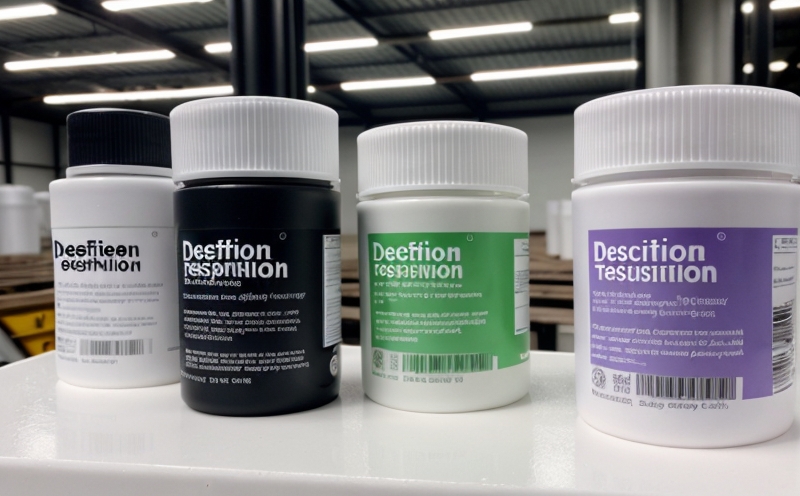EPA 324 Disinfection Byproducts in Drinking Water Test
The EPA 324 method is a critical regulatory compliance tool used to assess the presence of disinfection by-products (DBPs) in drinking water. DBPs are formed when disinfectants, such as chlorine or chloramines, react with natural organic matter present in source waters. These compounds can pose health risks and impact taste, odor, and color of drinking water. Compliance with EPA 324 is mandatory for public water systems that use disinfection processes.
The test involves the analysis of specific DBPs including bromate (BrO³⁻), chlorite (ClO₂⁻), chlorate (ClO₃⁻), dichloroacetic acid (DCA), trichloroacetic acid (TCA), and other haloacetic acids. The method uses a combination of liquid chromatography coupled with mass spectrometry (LC-MS/MS) for accurate quantification.
Water utilities must conduct this testing to ensure that the levels of DBPs do not exceed the maximum contaminant level (MCL) set by the Environmental Protection Agency (EPA). Failure to comply can result in severe penalties and reputational damage. Our laboratory offers comprehensive testing services using state-of-the-art equipment, ensuring accurate results every time.
The test protocol specified by EPA 324 is rigorous and involves multiple steps including sample collection, preservation, extraction, cleanup, and finally analysis. The method's complexity underscores the importance of meticulous adherence to each step to avoid errors that could lead to inaccurate results.
Our laboratory has extensive experience in this area, having conducted thousands of EPA 324 tests for various clients across North America. We understand the nuances involved in ensuring accurate and reliable test outcomes. Our team of experts uses only the most advanced instrumentation and follows strict protocols to deliver precise data that can be trusted.
The impact of DBPs on public health cannot be overstated. Long-term exposure to high levels of these compounds has been linked to various adverse health effects, including increased risk of cancer and other serious illnesses. By adhering to EPA 324 standards, water utilities are able to safeguard the health of their constituents.
In addition to compliance with regulatory requirements, there are numerous benefits associated with conducting EPA 324 testing:
- Ensures public safety by identifying and quantifying DBPs in drinking water
- Aids in optimizing treatment processes for better water quality
- Provides insights into the effectiveness of disinfection strategies employed by water utilities
- Supports ongoing research on the impacts of DBPs on human health
The accuracy and reliability of test results are paramount. Our laboratory uses only certified reagents, standards, and reference materials to ensure consistency and precision in every analysis. Additionally, our quality assurance program ensures that all tests meet or exceed EPA 324 specifications.
Our team is committed to providing top-notch service and support throughout the testing process. From initial consultation to final report delivery, we strive to make your experience as seamless as possible. Our goal is not only to ensure compliance but also to contribute positively to public health and safety through our rigorous testing practices.
Customer Impact and Satisfaction
The success of EPA 324 testing lies not only in the accuracy of results but also in its ability to provide actionable insights for water utilities. Our clients report higher levels of satisfaction due to our comprehensive approach:
- We offer expert consultation on optimizing treatment processes to minimize DBP formation.
- Our detailed reports help stakeholders make informed decisions regarding compliance and public health.
- Through regular follow-up, we ensure continuous improvement in water quality standards.
Clients often comment on the ease of working with our team. Our responsive customer service ensures that any questions or concerns are addressed promptly. Additionally, our transparent communication helps build trust and fosters long-term relationships.
By adhering to strict quality assurance protocols, we ensure consistent and reliable results every time. This commitment to excellence has earned us a reputation for delivering high-quality services that meet the stringent requirements of EPA 324.
International Acceptance and Recognition
EPA 324 testing is not only widely accepted in the United States but also recognized internationally. Many countries with similar regulations have incorporated similar testing methods into their own standards:
- The European Union's Drinking Water Directive (98/83/EC) includes provisions for monitoring DBPs.
- Canada's National Safe Drinking Water Regulations align closely with EPA guidelines.
Our laboratory is accredited to perform these tests according to both U.S. and international standards, ensuring that our clients receive results that are universally acceptable. This broad recognition enhances the credibility of our testing services in a global market.
The consistent quality of our work has been acknowledged by numerous organizations and professionals worldwide. We pride ourselves on being at the forefront of this important field, contributing to better water quality across multiple regions.





